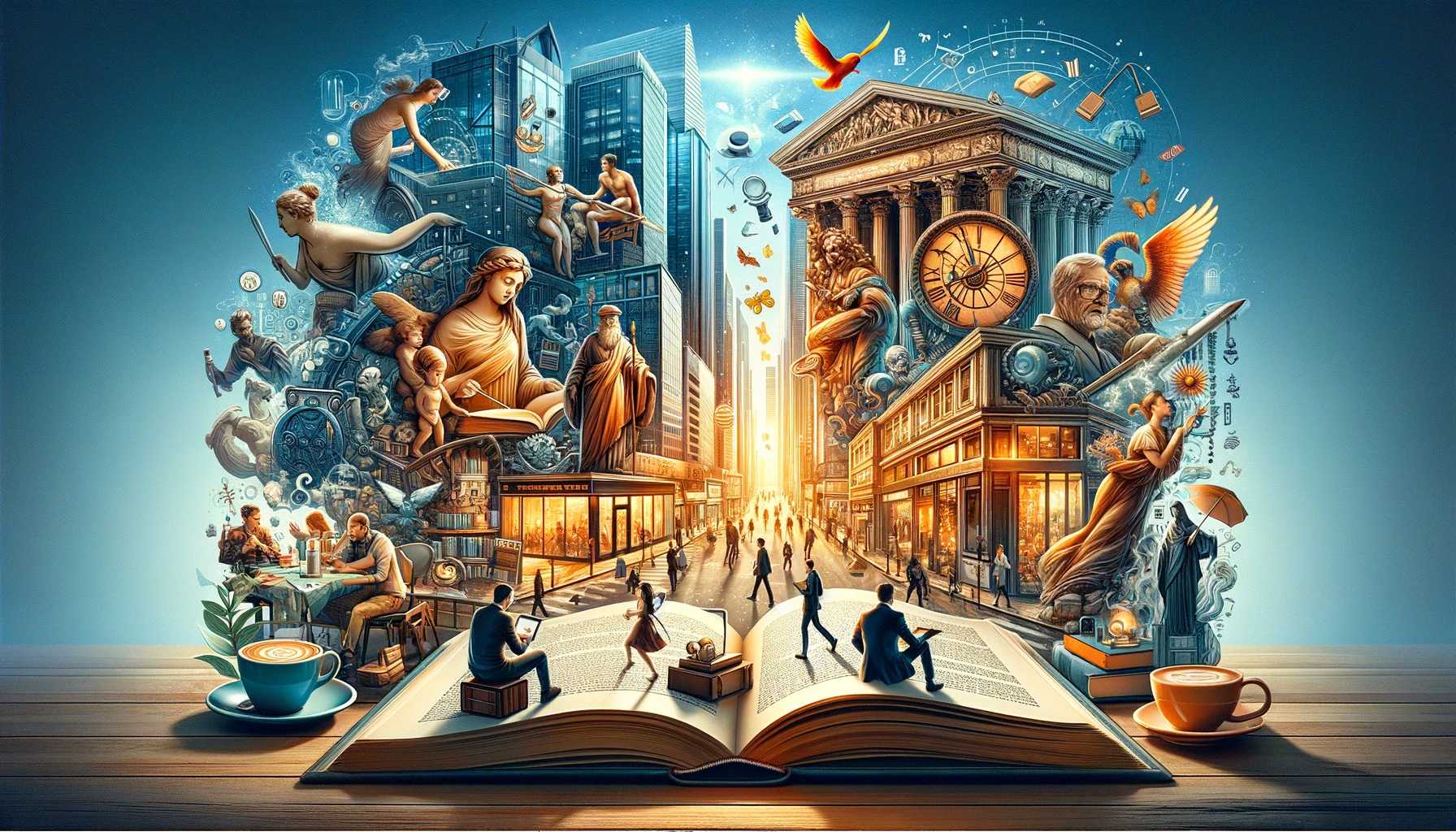The Enduring Influence: How Classic Literature Shapes Modern Society
Classic literature holds a timeless allure, captivating readers across generations with its compelling narratives, rich characters, and thought-provoking themes. But beyond mere entertainment, these literary masterpieces continue to wield a profound influence on modern society, shaping our values, beliefs, and understanding of the world around us. In this blog post, we'll explore the enduring impact of classic literature on contemporary culture, politics, and social discourse.
Cultural Archetypes and Universal Themes: Classic literature often explores universal themes and archetypal characters that resonate with readers from diverse backgrounds. Works like William Shakespeare's "Romeo and Juliet" or Jane Austen's "Pride and Prejudice" delve into timeless themes such as love, betrayal, and social class, offering insights into the human condition that remain relevant to this day.
Moral and Ethical Reflections: Many classic novels grapple with moral and ethical dilemmas, prompting readers to ponder questions of right and wrong, justice and injustice. For example, Fyodor Dostoevsky's "Crime and Punishment" confronts issues of guilt and redemption, while Harper Lee's "To Kill a Mockingbird" explores the complexities of racial prejudice and social injustice.
Literary Influence on Language and Expression: Classic literature has contributed numerous phrases, idioms, and expressions to the English language, enriching our vocabulary and shaping our modes of expression. From Shakespeare's coined words and phrases to Charles Dickens' vivid descriptions, the language of classic literature continues to permeate modern discourse, lending depth and nuance to our communication.
Political and Social Commentary: Many classic novels serve as powerful vehicles for political and social commentary, critiquing prevailing norms and institutions while advocating for change. George Orwell's "1984" warns of the dangers of totalitarianism and mass surveillance, while Aldous Huxley's "Brave New World" explores the dehumanizing effects of technology and consumerism.
Inspiration for Artistic Expression: Classic literature has inspired countless adaptations, interpretations, and artistic reimaginings across various media, including film, theater, and visual art. From film adaptations of Shakespearean plays to contemporary retellings of classic novels, these artistic interpretations breathe new life into timeless stories, ensuring their relevance for modern audiences.
Educational Significance: Classic literature remains a staple of educational curricula around the world, exposing students to diverse cultures, perspectives, and historical contexts. Through the study of classic texts, students develop critical thinking skills, cultural literacy, and empathy, fostering a deeper understanding of themselves and the world around them.
Cultural Legacy and Literary Canon: Classic literature forms an integral part of the literary canon, representing a collective heritage of human creativity and achievement. As custodians of this cultural legacy, readers and scholars play a crucial role in preserving and interpreting classic texts for future generations, ensuring their enduring relevance and significance.
Continued Relevance in Contemporary Issues: Despite being written in different historical periods, many classic novels continue to resonate with contemporary issues and concerns. Whether addressing themes of identity, alienation, or social inequality, these timeless works offer valuable insights into the complexities of the human experience, fostering empathy and understanding across cultural divides.
Cognitive Development and Empathy Building: Engaging with classic literature has been shown to enhance cognitive development and foster empathy. As readers immerse themselves in the lives and experiences of characters from different time periods and cultures, they develop a deeper understanding of human emotions, motivations, and complexities. This empathy-building aspect of reading classic literature extends beyond the pages of the book, influencing readers' interactions with others and their ability to empathize with diverse perspectives.
Influence on Popular Culture and Media: Classic literature continues to leave its mark on popular culture and media, with references to iconic characters, scenes, and quotes appearing in everything from television shows and commercials to memes and social media posts. Whether it's the enduring popularity of Sherlock Holmes or the timeless appeal of characters like Elizabeth Bennet and Jay Gatsby, classic literature permeates modern culture, shaping the narratives and imagery that define our collective imagination.
Inspiration for Social Movements and Advocacy: The themes of justice, equality, and human rights explored in many classic novels have inspired social movements and advocacy efforts around the world. From the civil rights movement in the United States to the fight for gender equality and LGBTQ+ rights, classic literature has served as a catalyst for social change, empowering individuals to challenge oppressive systems and work towards a more just and equitable society.
Reflection of Historical Contexts and Cultural Values: Classic literature provides valuable insights into the historical contexts and cultural values of the time periods in which they were written. By examining the social, political, and economic conditions depicted in classic novels, readers gain a deeper understanding of the forces that shaped past societies and continue to influence our world today. This historical perspective enables readers to critically assess contemporary issues and events, drawing parallels between the past and present.
Legacy of Literary Innovation and Craftsmanship: Classic literature stands as a testament to the enduring legacy of literary innovation and craftsmanship. From the intricate plot structures of Charles Dickens to the poetic language of Emily Dickinson, classic authors pushed the boundaries of storytelling and language, leaving an indelible mark on the literary landscape. By studying the techniques and innovations of classic literature, aspiring writers and scholars gain valuable insights into the art of storytelling and the power of language to captivate and inspire.
In conclusion, the impact of classic literature on modern society is profound and far-reaching, shaping our values, beliefs, and understanding of the world in myriad ways. From exploring universal themes and moral dilemmas to inspiring artistic expression and political discourse, classic literature continues to enrich our lives and challenge us to think critically about the world around us. As we continue to engage with these timeless works, we affirm their enduring relevance and reaffirm their status as cultural treasures worthy of preservation and celebration.









